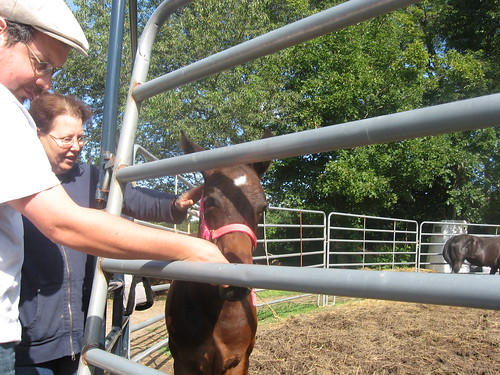It all happened in Providencia
by Jorge López
On the metro, at Manuel Montt station. An old woman is having trouble trying to get off, unable to find a handhold anywhere. The train brakes and the woman steadies herself against me. I hold her up, I give her my hand. Hold on, I say. She grips my hand firmly and smiles at me. Thank you, you’re very kind. I hold her up and help her move up until she’s able to get to the exit. She again thanks me. Have a good day, I say. You too, young man.
That’s all it would have been, one event in the course of the day, if it weren’t for a voice -- grave, reproachful -- inside the train car as the doors closed.
-- That lady’s too old to be fooling anybody.
The light at the corner of Guardia Vieja and 11 de Septiembre is red; a few pedestrians are waiting to cross. I’m watching, my earphones on, a bit cut off from the world. In the few seconds of silence between the end of one song and the beginning of the next, I overhear a bit of conversation between two of them, perhaps a mother and her daughter.
-- Well, it was just that poor-person smell!
The way poverty smells. It hurts me, it moves me to hear that; what moves me the most is that I recognize it, I see its reflection in myself. I too have spoken of the odor “of poor people,†always doing an embarrassed double-take, I who work with poor people, it has nothing to do with poverty.
I’m walking along Providencia, GalerÃa Drugstore is one of those over-designed, over-priced shops. One of the customers is saying to the woman at the counter:
-- You know, I have to make so many adjustments when I come by here, I live up in La Dehesa, I never come down here...
I leave the store quickly, almost automatically.
Night is falling on a rainy day. A man on the sidewalk, a drunkard, a homeless man I’m sure, sheltered by the eaves of the Portal Lyon. It’s not unusual to see homeless around here. Today it is cold, and he is not even covered by the customary cardboard boxes. I move a bit closer and notice the smell of spilt wine. So drunk he cannot stand up, I guess. But it’s not the ordinary box wine. Shards of glass are glittering on the sidewalk, I step carefully trying to avoid them. Did he throw the bottle down after he drank the last drops? Did somebody smash the bottle against him? I don’t see any blood, he appears to be conscious, sitting, doesn’t seem to be hurt. I don’t ask him what happened, just go on my way, don’t get involved.
I’m as much to blame as anyone, only thinking of how to get home without getting wet, the few more blocks remaining, perhaps the McDonald’s on my street will still be open.
At what point did we lose our solidarity, our understanding? We shut ourselves off so coarsely from the world. When did this moment come?
posted afternoon of Sunday, November 14th, 2010
➳ More posts about Translation
➳ More posts about Writing Projects
➳ More posts about Projects
➳ More posts about Readings

This is nice! Your translation has a really nice flow while staying very faithful to the original, though I'd say I even prefer it in english, as it makes me feel a bit more as an outsider of the story and less of a protagonist.
Really, really nice!
posted evening of November 15th, 2010 by Jorge López

Thanks, Jorge!
posted evening of November 15th, 2010 by Jeremy

(One question, about your phrase "nos segregamos tan groseramente" which I have rendered as a sentence of its own, "We shut ourselves off so coarsely from the world" -- I'm not sure I understand what you mean by "groseramente" -- is this meant to communicate lack of sympathy? Maybe "callously" would be better than "coarsely.")
posted evening of November 15th, 2010 by Jeremy





 A new story from
A new story from 



